The list of Earthbound inspired games is growing, with En House Studios continuing the trend with fourth wall breaking, existentially themed GLITCHED. In GLITCHED, the player, assisted by a fictional game company, tries to enjoy a game about a modern day boy leaving home for the first time. But the game “glitches” out and the characters (both company employees and their game characters) notice it.
En House wisely released a meaty demo to show how much immersion they can pack into an intentionally immersion breaking game. Much like Undertale, there is a lot going on under the hood that affects your story, though players may not notice the specifics.
The Glory of GLITCHED
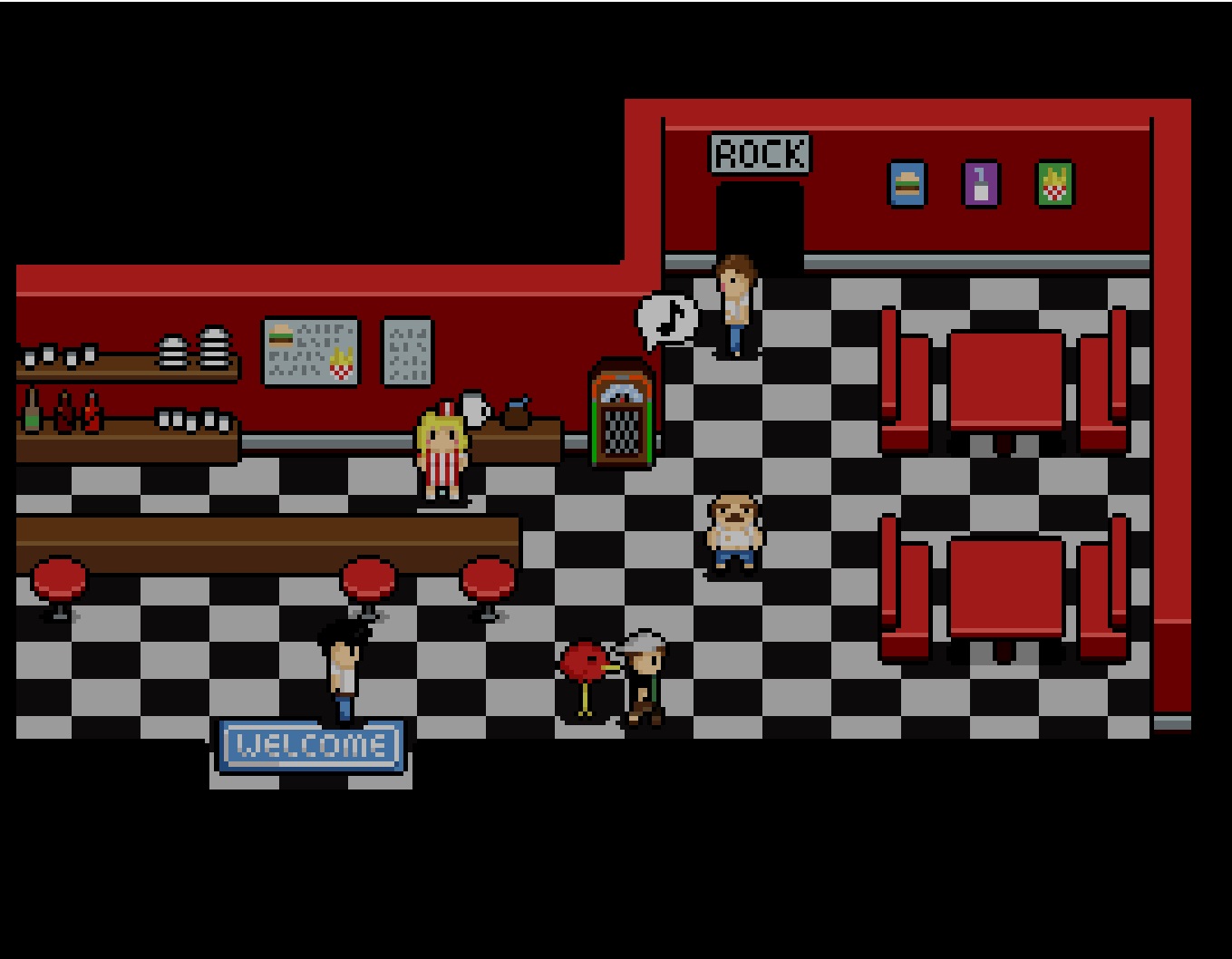 There is a lot to like about GLITCHED. The hidden/masked aspects of the game and emphasis on choice is probably what’s empowering a Reddit community. Some people want to know everything about the game they’re playing without searching the internet. I get that, especially for single player games. However, the multiple outcomes and choices in the game make talking about it almost like solving a puzzle.
There is a lot to like about GLITCHED. The hidden/masked aspects of the game and emphasis on choice is probably what’s empowering a Reddit community. Some people want to know everything about the game they’re playing without searching the internet. I get that, especially for single player games. However, the multiple outcomes and choices in the game make talking about it almost like solving a puzzle.
While Undertale’s graphics turned me off during it’s Kickstarter, GLITCHED immediately attracted me to it. The emphasis on a modern world probably helps. So too do the more detailed portraits, mixing classic pixel art with a modern look. The animated art for faces and enemies will only further this. The game’s soundtrack is similar, though it hasn’t yet hit me quite as hard as Undertale’s.
Much like Undertale, the play on classic JRPG tropes and use of lesser used tactics (like getting rid of the original hero and forcing you to play their partner) instantly pulled me in as a veteran of the genre. The simple story about leaving the only home you’ve known is easy to relate to and makes Gus empathetic. He’s a bit rebellious at times, even fragile, but that’s why I like him. Talking to Gus directly and answering his questions makes him feel like a younger, digital brother. I want to help him out and see him succeed, but I also know that I can’t just lecture him or he’ll get overwhelmed.
The ability to “act” your way out of fights is a nice addition. It feels less intuitive than Undertale’s system, in that Undertale gave you more frequent hints that your actions had an affect on the fight. That being said, GLITCHED gives you multiple options to take advantage of. For example, rather than petting an animal, you may have to speak nicely to it before it lets you pet it. It’s a small difference, but noticeable.
We once again have a JRPG that gives us a non-violent way to get through combat. You’re still free to be violent, but other characters, including Gus, will mention when you’ve done something immoral. While the demo doesn’t pack as strong as a morality punch as Undertale‘s, it does hold a lot of potential. Combined with the timeless theme of leaving home but with an older character players can appreciate, the game already feels like it’s something I’d recommend to both kids and parents.
The Earthbound Connection
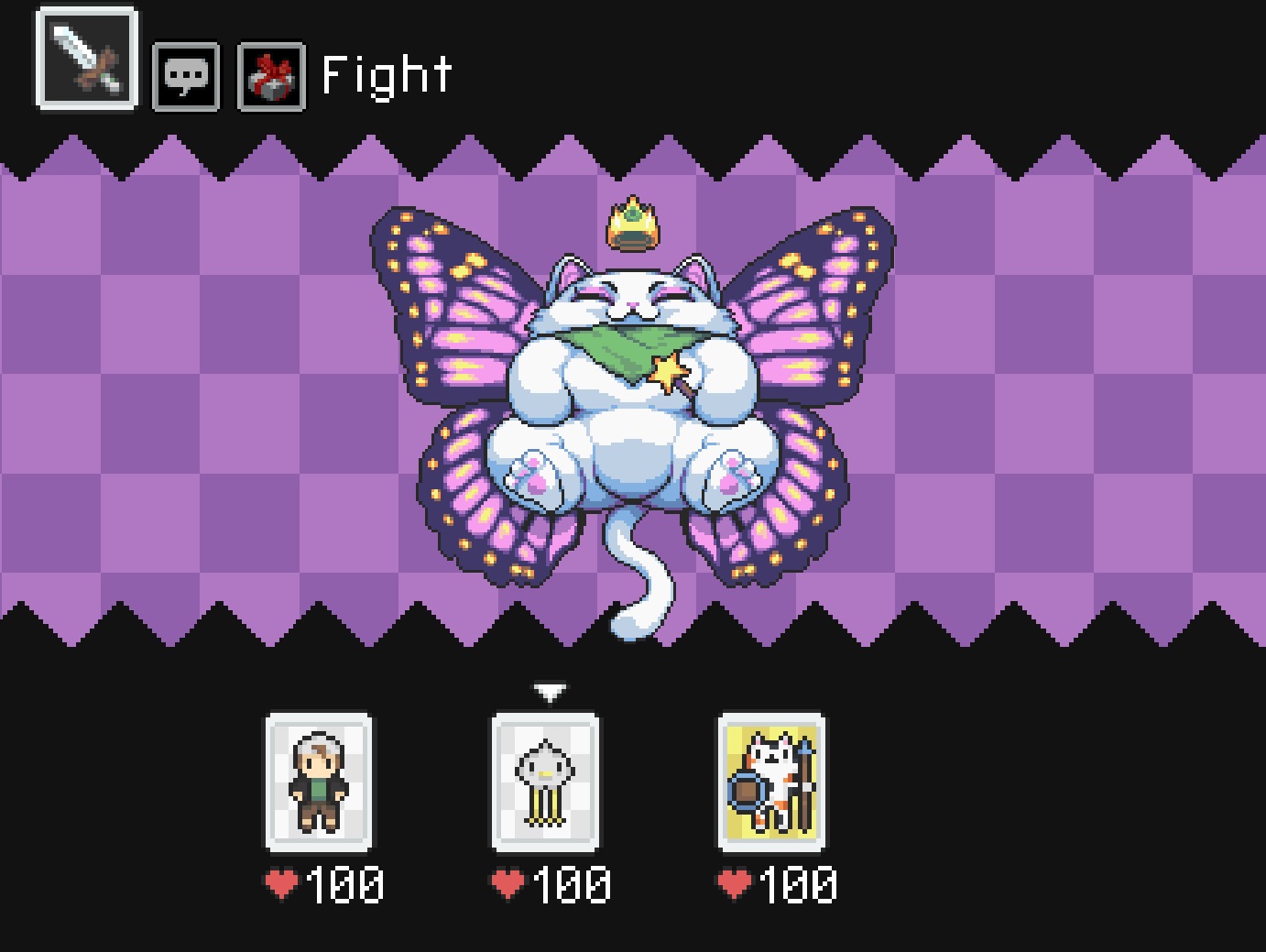 GLITCHED doesn’t need its Earthbound references to succeed, but they add charm that connects fans to the game a little more. Visually, the pixel art could come from any game, but the unique backgrounds with detailed art of an overworld enemy is something that Earthbound featured heavily. For those of us who played the sequel, Mother 3, the addition of various chimera and small, on-screen representations of our heroes, adds an additional layer of charm.
GLITCHED doesn’t need its Earthbound references to succeed, but they add charm that connects fans to the game a little more. Visually, the pixel art could come from any game, but the unique backgrounds with detailed art of an overworld enemy is something that Earthbound featured heavily. For those of us who played the sequel, Mother 3, the addition of various chimera and small, on-screen representations of our heroes, adds an additional layer of charm.
Breaking the fourth wall with pop culture references was popular in Earthbound too. But having the player assist the hero during the game’s conclusion was a particularly effective technique that strongly affected me as a player. Using this as a starting point in GLITCHED reminds me of Earthbound while also deepening my connection to the character.
Other small touches, like Gus’s baseball cap and bat at as a the Striker class, the simplified Starman symbol (which Papyrus wore in Undertale), and answering normal conversational questions to impact your gameplay all standout as very Earthbound-esque. Certain characters, like George Salami and the Bebo, have similarities to Liar X. Agerate and the Saturns, the latter of which even has its unique text making a quick appearance in the game.
While it sounds like a lot, all of this in naturally incorporated in ways that non-Earthbound fans likely won’t see as odd or unnecessary, just as unique additions to the gameworld. Though GLITCHED has a number of influences from Earthbound, Undertale, and other games, it does bring some interesting new ideas to the genre.
Issues in GLITCHED
While I’ve gushed about the demo, there is still plenty to improve upon. Obviously anything can change at this point, but one thing I noticed almost immediately was that a lot its mechanics weren’t explained. For example, choosing your instrument during the game’s opening interview style introduction is actually assigning you a class.
Choosing the Guitar makes you a Defender (tank), but choosing the Singer makes you become a Striker (a baseball bat wielding combo-generating dps). I would expect the singer to be the tank as they get the most attention, and drums (a DPS class) would be the medic as they tend be stay in the back and drive the beat forward. For me, these choices make no sense. If I weren’t so flexible, I might be a bit miffed by this.
The hidden significance of choice deepens once you start playing. You have stats, but none are explained in the game. Rather than more traditional labels like “Attack” and “Willpower,” we have “Veil” and “Creamy.”
As Undertale‘s bullet hell combat was skill based, stats were a non-issue. GLITCHED’s turn-based combat makes stats much more noticeable, especially with stats affecting turns and damage intake.
However, especially on easy (or “Mild”) mode, none of this may matter. GLITCHED’s main emphasis on exploration and story means there’s no leveling and no random battles. Your most important choices are made through the game’s dialogue options, often coming up when Gus needs help. This takes focus off a lot of the traditional game mechanics and causes the player to concentrate on how their choices affect the game. This makes the RPG aspect of the game so engrossing that you likely won’t miss traditional RPG combat mechanics. Because of this, I almost wonder if it’d be better to hide stats too, but add an option to reveal some of the more important details (such as class choice) by selecting a settings option.
While I’m going to say a lot of good about the game, I also have to say that after multiple playthroughs, the game’s main character, Gus, feels like a lemming on a set path that leads to his doom unless the player intervenes. This is important because when I started noticing the game’s existential angle, I felt like Gus should have more control over his destination, that he should be able to have a chance at succeeding at certain things without the player’s help. Existentialism in gaming is interesting, but until our heroes can potentially succeed without us, breaking the fourth wall in an existential game only reveals how deterministic video games are.
Standing Out in the Crowd
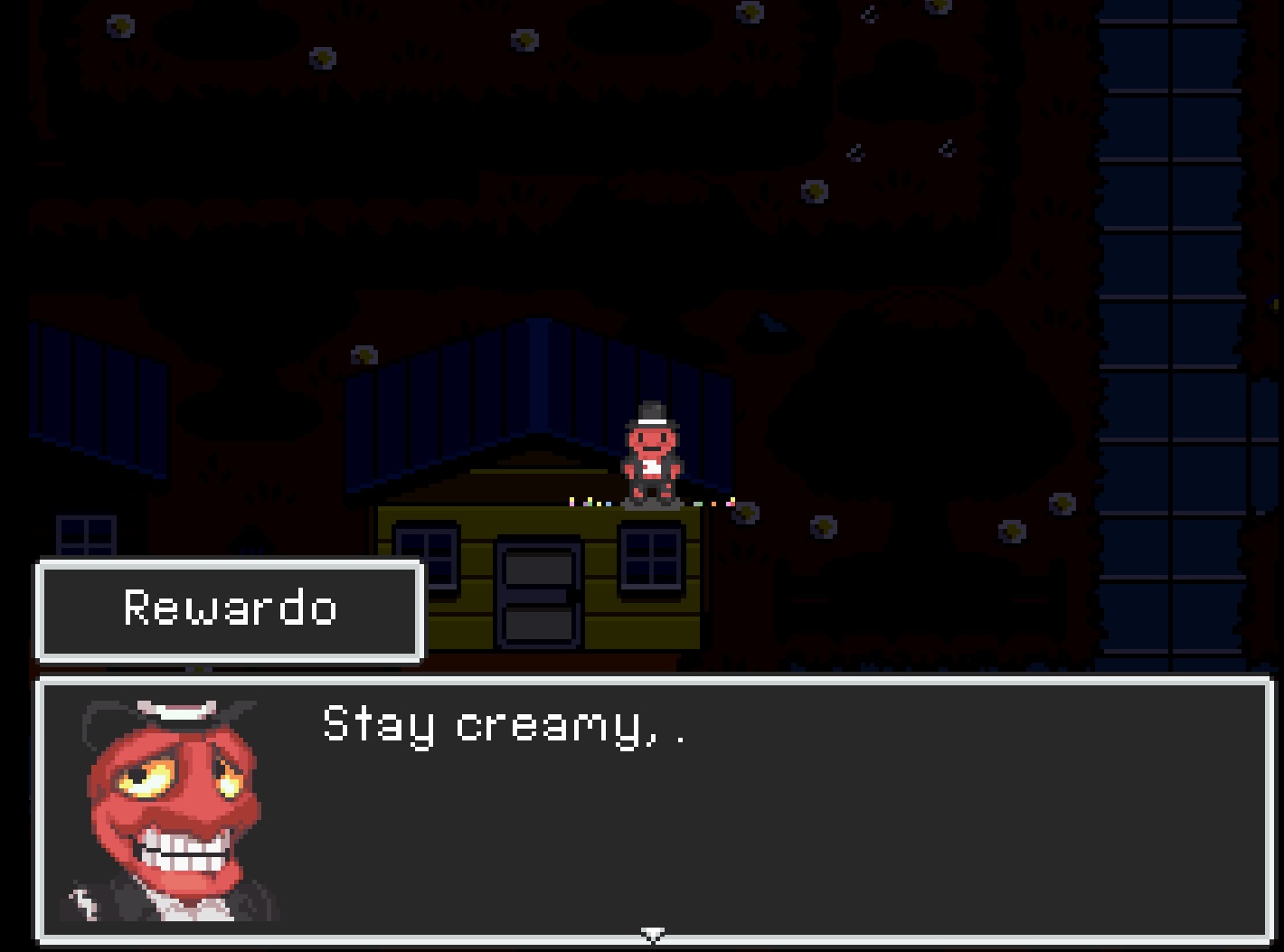 GLITCHED may partially be the product of Earthbound’s legacy, but it can stand on its own and bring some surprises to the table. There’s the Essence system, which acts as a deeper sort of alignment system. Rather than good or bad, Essences are more similar to motivations, seen through six different colors that remind me of the True Colors Personality test, furthering the therapeutic feeling of the game. Applied to the narrative though, it feels like the story could really change drastically in meaningful ways.
GLITCHED may partially be the product of Earthbound’s legacy, but it can stand on its own and bring some surprises to the table. There’s the Essence system, which acts as a deeper sort of alignment system. Rather than good or bad, Essences are more similar to motivations, seen through six different colors that remind me of the True Colors Personality test, furthering the therapeutic feeling of the game. Applied to the narrative though, it feels like the story could really change drastically in meaningful ways.
However, it also almost feels unnatural during certain scenes. We’re given our first choice to utilize it after something terrible happens to our friend. We can then make a tourist attraction out of the remaining fallout. Choosing that option got me a key item for less money and stopped two characters fighting each other.
Your essence can also change through gameplay, as seen through the color of your hat. I started one playthrough as the yellow essence with a yellow hat (and matching Bebo), but ended with a brown hat (the Bebo remained yellow though). Allowing for player choice to affect how the character is seen and changing their options isn’t new. But the essences feel deeper than most other morality systems, and far less patronizing.
This is especially nice as the game world is well thought out and includes a lot for the player to consider. I’ve noticed that a lot of the characters in your hometown have Irish names, with Gus’ being particularly symbolic. It means “Strong Choice,” which is perfect for the game’s theme. The game world, “Soren,” comes from the Latin word meaning “severe.” It’s quite appropriate considering all the ways you can get a game over by messing with Gus’s emotions too much.
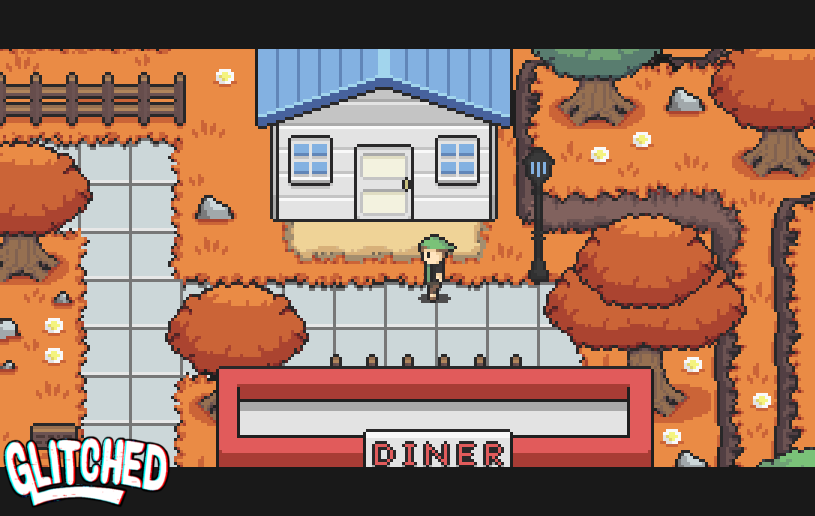
Some of the names are easy enough to understand, such as Tac, an odd cat whose name is just “Cat” backwards. The spear wielding cat is named Gar, the old English word for spear, which is obviously a bit trickier. However, I noticed each character has a sign or something in the town records, possibly based on Latin or Greek, matching their essence. I’ve only found the etymology for one of the signs and another simply looks like a possible influence. It gives more zealous fans like myself something to chew on while we wait for the game to come out.
What’s really fun though is that the game rewards for exploring the world, without explicit bread crumbs or Achievement pages to guide you. A strange character called Rewardo randomly appeared after I’d checked 10 trees, and again after I checked 10 rocks. The bonus was minimal, a cookie that restored 20 health. But his strange look, entrance, and dialogue encouraged me to explore the game as much as possible.
These aren’t exactly genre-expanding features that’ll revolutionize gaming, but they’re rare and executed well. The combination of new and old with tropes and twists makes GLITCHED’s demo highly enjoyable. I look forward to guiding Gus through his existential crisis once the full game releases in early 2018.
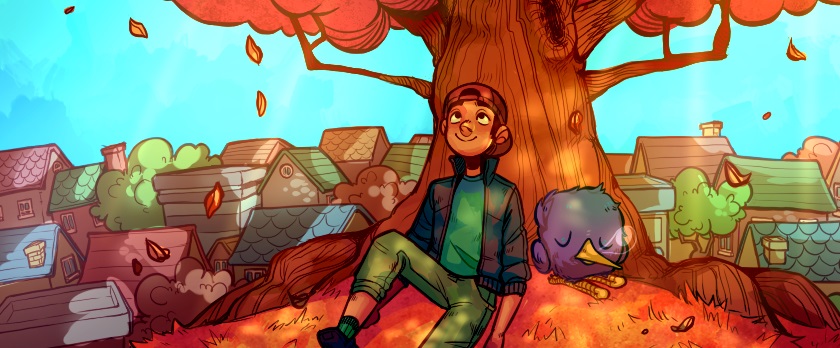
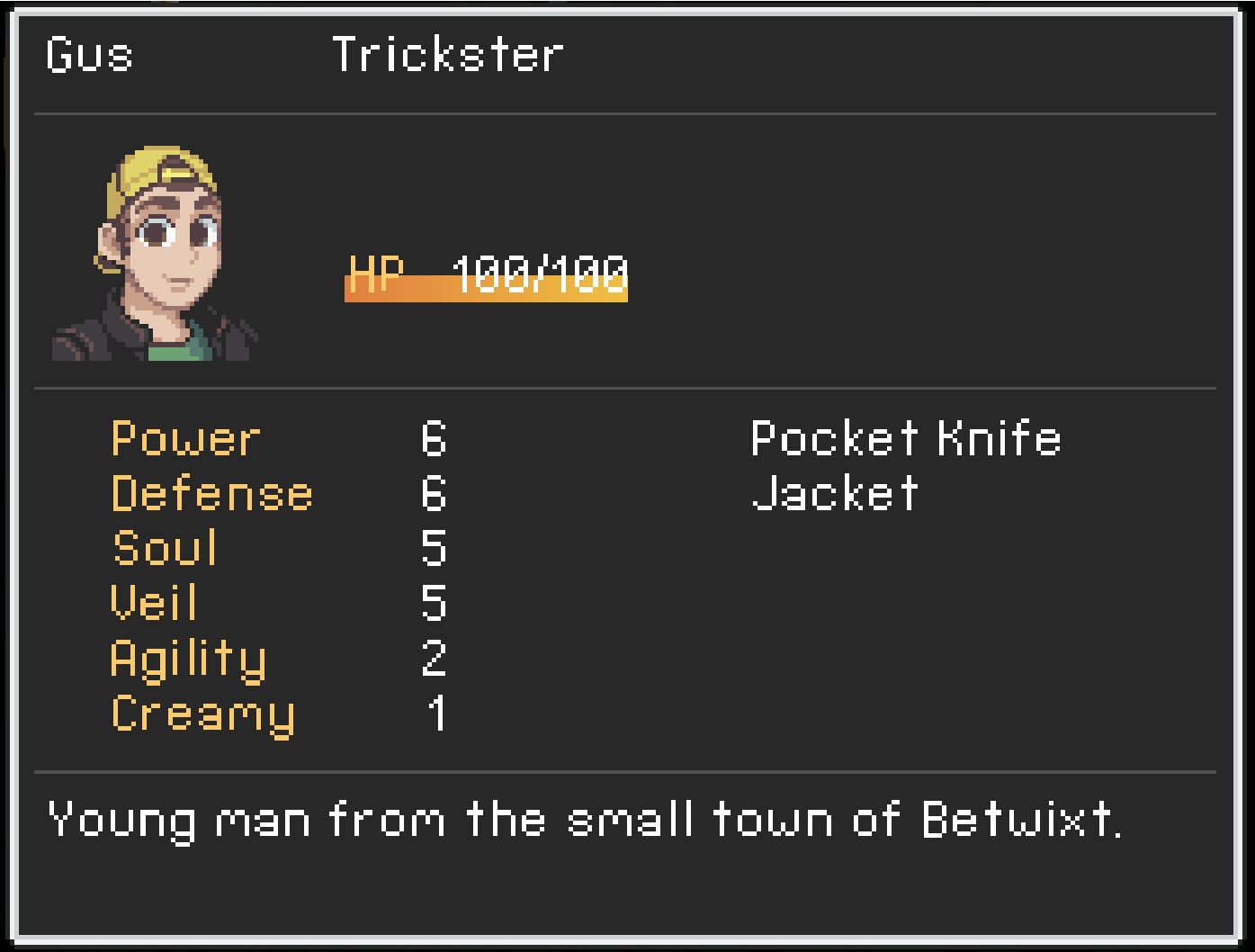



The existentialist theme is what I’m really looking forward to seeing well executed. It gets brought up in quite a few games within the game world, but it rarely breaks the fourth wall.